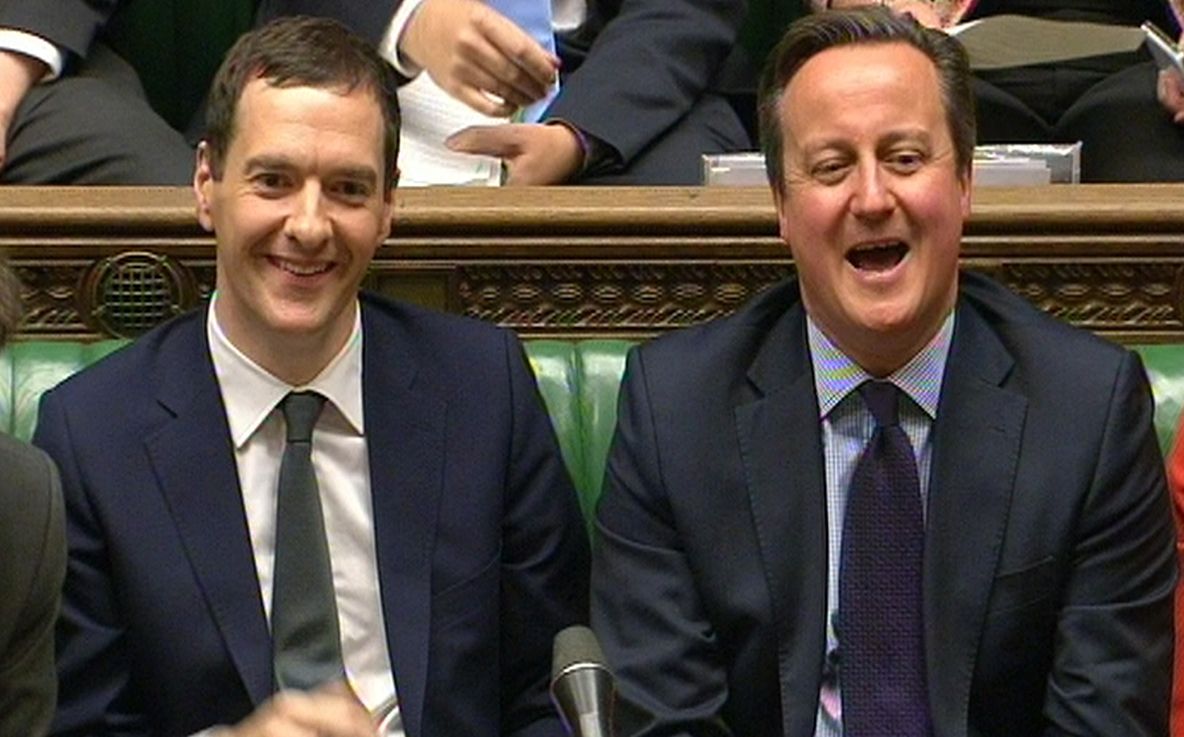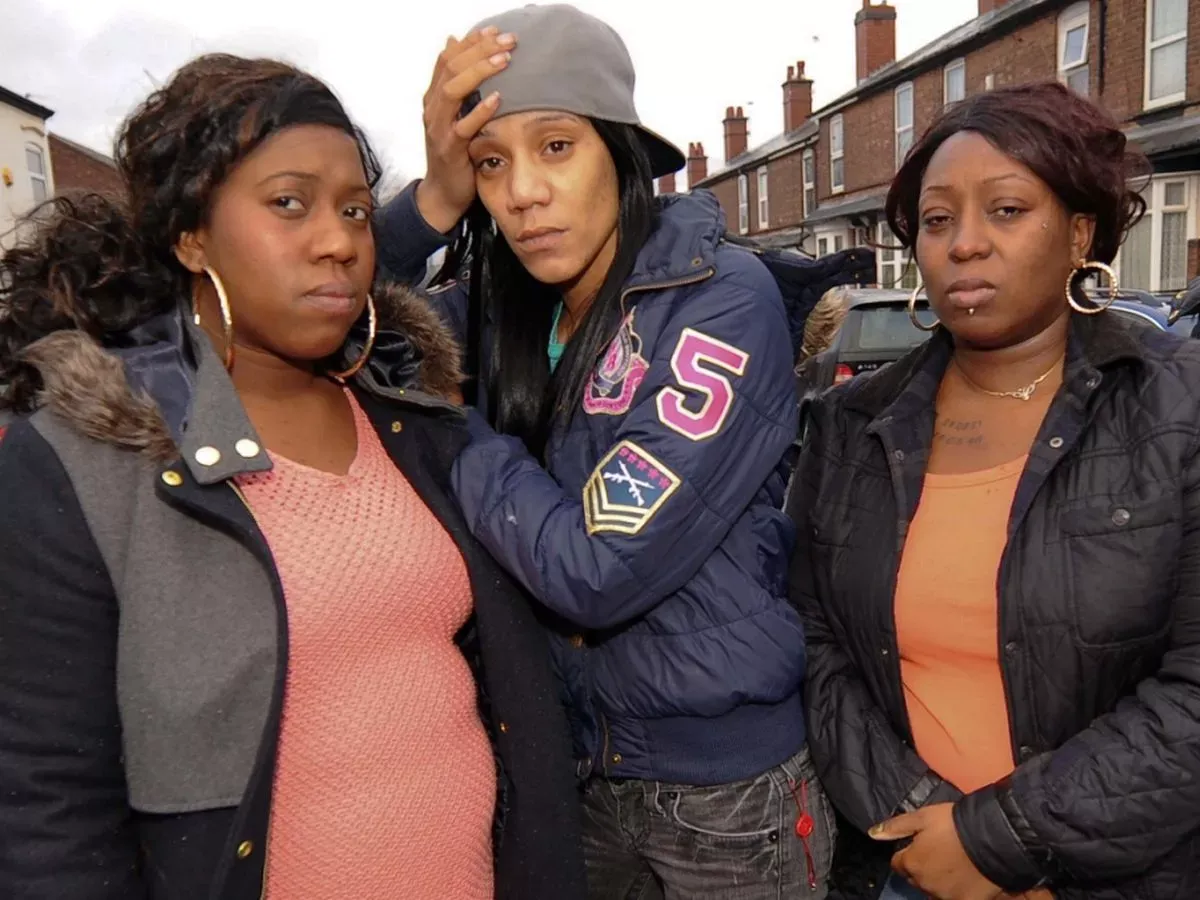Britain's Ticking Time Bomb
If you're wondering why everything feels pretty rubbish, it's because it is pretty rubbish. The last fifteen years, ever since the 2008 Financial Crash, have been like the world's most depressing surfing contest, with wave upon wave of crisis and upheaval following one another.

If you're wondering why everything feels pretty rubbish, it's because it is pretty rubbish. The last fifteen years, ever since the 2008 Financial Crash, have been like the world's most depressing surfing contest, with wave upon wave of crisis and upheaval following one another.
The global financial crisis in the late 2000s saw Britain wave goodbye to the Labour Party, whom the Conservatives successfully blamed all of Britain's woes upon. Although it might be about to change, Britain has been under Conservative rule ever since. Then-Prime Minister David Cameron and his Chancellor George Osbourne ushered in an era of austerity, to prevent Britain "living beyond its means". They gladly blamed the Financial Crash on Labour, repeatedly getting away with parroting the line that Gordon Brown somehow caused a global economic meltdown singlehandedly. We'll come back to why that's important.
I remember arguing at the time that no country had ever successfully cut its way out of a recession, and whilst Britain may have been somewhat stabilised by 2015, I stand by that assertion.

Austerity ravaged core public services in the UK beyond recognition. The crises we regularly see in the NHS today are a direct result of Conservative Party policy. Life expectancy in Britain has slowed dramatically - in England's most deprived areas it has actually fallen in the last ten years - and growth is now slower than the rest of the G7. From having the seventh highest life expectancy in the world in the 1950s, Britain now has just the 29th.
It's not just life expectancy that's slowed to a halt, living standards have barely improved for twenty year, with average UK real household income unchanged since 2007. Low income households in the UK are now 22 percent poorer than their equivalents in France, according to the Resolution Foundation.
Austerity was followed by Brexit, which unleashed unprecedented economic upheaval and disruption and wiped 4% off the GDP. Just as the UK left the European Union, the Covid pandemic hit, wreaking yet more havoc on the economy, the NHS and the health of the workforce.
Throughout this period, increasingly populist government rhetoric, designed to deflect blame for Britain's failures onto anyone they could (immigrants, foreigners, the EU, poor people) led to repeated election victories for the Conservatives, despite things getting demonstrably worse.
Most recently, the collapse of the Boris Johnson's government over corruption, lying and sleaze led to the arrival of Liz Truss, and we moved from our most corrupt government in history to our most incompetent. Within just six weeks, Liz Truss and Kwasi Kwarteng almost succeeded in crashing the global pensions market, and caused absolute chaos in Britain's financial markets. Mortgages started to surge - the consequences of which we are still living with.
Against this backdrop of domestic self-immolation, Russia's invasion of Ukraine caused global food, gas and commodity prices to surge. As a result of all of the above, Britain finds itself in a cost-of-living crisis and amidst the biggest drop in living standards on record.

Try as they might to blame our woes on migrants crossing the channel, or by stuffing them onto barges docked off the south coast, the Conservatives' jingoistic rhetoric appears to be wearing thin with the voters. Labour should win the next General Election comfortably.
Yet, whilst it's easy to see a Labour victory as a light at the end of the tunnel, what will remain for them to govern?
The Britain of 2023 is a poor artist's impression of what they left behind in 2010. Public services have been decimated. Stagnation has taken hold as our productivity fails to improve. Investment and trade with our nearest neighbours is significantly more difficult post-Brexit. There are few quick wins. For Britain to get back on track, it will have to adopt a progressive, outward-looking approach to trade, immigration and foreign policy: all of which the Conservatives have spent the last thirteen years destroying.
Angry voters – who, it's worth clarifying, are well within their rights to be angry – have been misdirected. They blame their declining living standards on the generalist "them", trying to take things away from "us". Whether it's the European Union, immigrants or 'woke lefties', they have been fed a worldview completely at odds with the truth.
Economic hardship breeds discontent, which in turn leads to populism. Populism does not solve the economic hardship, preferring to line the pockets of cronies and associates than those of the wider population. Populism depends upon a fundamental and deliberately employed misunderstanding of the status quo to succeed.
Worryingly, a Labour victory is not necessarily a vote against populism, or the rhetoric that has dominated our headlines for over a decade. Labour know this, as demonstrated by their unwillingness to discuss the damage caused by Brexit, and their continued refusal to commit to rowing back on policies like the migrant barges.
Boris Johnson spoke to Labour voters "lending" them their vote in the Red Wall, out of a refusal to vote for Jeremy Corbyn. Starmer will realise that he must depend on similar borrowed votes. Longtime Conservative voters have a litany of things to protest about: soaring mortgages, stagnation of wage growth, declining business conditions caused by Brexit, decline in NHS services, Rishi Sunak's obscene wealth and low tax payments... the list is endless.
But a rejection of one of these points does not represent a rejection of them all. The Home Office under Theresa May ran the infamous "Go Home" vans and she still won a General Election. The turning point in Labour's electoral prospects only really occurred when Liz Truss brought the effects of policy into people's lives through their mortgage payments and shopping bills.
Up until that point, shipping asylum seekers off to Rwanda, lining the pockets of party donors through corrupt PPE procurement, even food shortages in the supermarkets after Brexit were all seen as perfectly tolerable in the name of "sovereignty" and "leaving the bloody EU."

So successful has the populist propaganda of the Conservative Party been that none of the above was electoral suicide - when each and every single one would have finished governments off in the past.
Even when Boris Johnson was rightly removed from office, a significant number of people felt that he had been persecuted for "doing his best" despite overwhelming evidence to the contrary. Much like Donald Trump, now facing a plethora of legal charges in the United States, the populist cult that surrounded Johnson and Brexit managed to render the truth and justice redundant in favour of a cult of personality against a faceless enemy. For Trump, it's the "elite" trying to – and the irony is palpable – interfere in the upcoming election. For Johnson and the Conservatives, it's the woke lefties trying to – irony warning again – run the country down to look after their own, liberal interests.
How did we get to such a disturbing place, where facts and reality have been replaced by lies and illusion? I said we'd come back to it, but it seemed to begin after 2008, when David Cameron could repeat without challenge that Gordon Brown was at fault for the global economic meltdown. If such a lie – which though patently ridiculous, was still based on a modicum of truth – could become a widely accepted fact, why stop there? It began to extend through austerity policies, revitalising the demonstrably false concept of the "deserving and undeserving poor". In Conservative Britain, you were assumed to be a "deserving poor" person, facing hardship primarily down to your fecklessness and laziness. The media, with programmes like Benefit Street that were dubbed poverty porn, gladly backed up the message. The messaging was incredibly successful. In 2012, it was estimated that 0.4% of Disability Living Allowance payments were fraudulent. At the same time, the average Briton believed that 30% of disability claimants were falsely claiming. The perception of the problem was nearly 100x larger than the reality.

Soon it became clear that Britain would not only tolerate some light populist jargon, they would enthusiastically lap it up. With that, the Brexit campaign doubled down on presenting absolute rubbish as gospel. Whether it was the £350m per week to the NHS, the pending "invasion" of Turkish migrants through the EU, or the outright falsehoods like the EU banning bendy bananas, the repetition of untruths made them – for many – become true.
We have very clearly entered a post-truth era of politics on both sides of the pond. People voting for Joe Biden or Keir Starmer does not undo the damage that came before. The very fact that Insurrectionist-in-Chief Trump is neck-and-neck with Biden in the polls for the next Presidential Election demonstrates that the lessons have not been learned. The Republican Party seem happy to embrace a total disregard for right and wrong in order to regain power. If we assume that Keir Starmer is Britain's next Prime Minister, there is no reason to assume that the Conservative Party will view electoral defeat as a rejection of populism - rather that they weren't populist enough.
The damage Britain has sustained in the past decade is colossal, and cannot be understated. As I've written before, I turned was 18 in 2008 and the optimism and hope for the future that I felt then has been eroded, repeatedly, every year since then. I suspect that I'm not an isolated case, but rather a microcosm of the struggles that millions of others in the UK have felt since then.
Not everything that has happened since 2008 is the fault of the Conservatives. They did not cause the 2008 Financial Crash (nor did Labour, for the record). They did not cause a global pandemic. What cannot be denied is that they choices they have made in the last thirteen years made the effects of every single crisis worse than they needed to be. Also, they did cause Brexit, so it's hard to get away from that one.

Britain's time-bomb is a dangerous one. The pent up anger and frustration of millions of people, weaponised so effectively to achieve Brexit, has not disappeared. Brexit is not exactly going as promised. The relief it was supposed to bring to the plight of many has not materialised, and thus the anger that facilitated it still lingers. It has been compounded with the misery caused by the cost-of-living crisis, mortgages skyrocketing, and people unable to use what's left of the NHS post-Covid. This frustration, anger and misery has to come out somewhere, or be rectified quickly.
Since I can't see any quick wins when it comes to solving people's misery – apart, perhaps, from some kind of generational investment into the NHS by a new Labour government – it's logical to assume that this anger will linger beyond the next General Election. With the Conservatives unshackled from the responsibility of actually being in power (not that it seems to have shackled them very much thus far), they can embark on a renewed, toxic blame-game against an imagined enemy. Whether it's a new antagonist or a returning favourite remains to be seen.
I would very much like to hope that we have past the worst of it, but I fear we are just at the beginning of the process. Things may have to get worse still before they can get better, if they are to get better at all.


